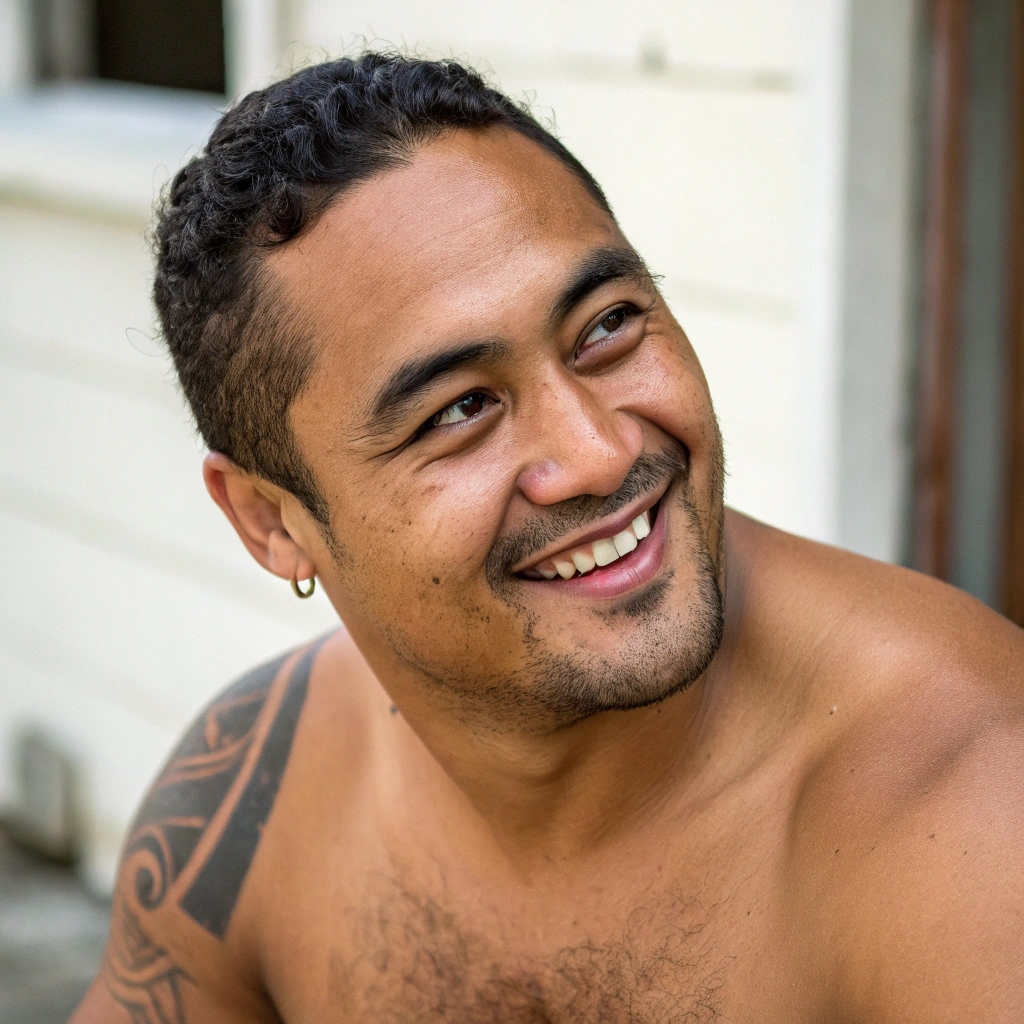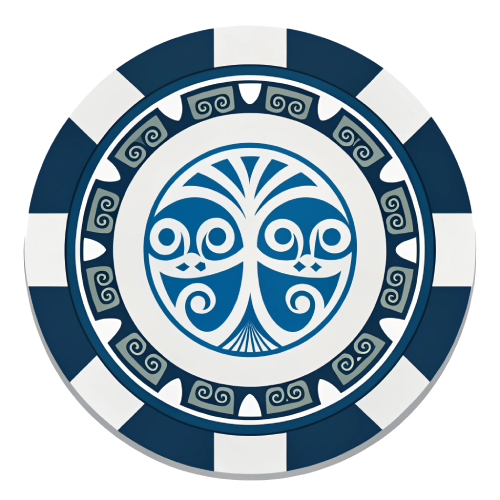Some of the links on this page are affiliate links, meaning we may receive a commission if you sign up or make a deposit — without any extra cost to you. This allows us to maintain nz-artists.co.nz as a free and regularly updated resource. We only feature casinos that pass our strict evaluation standards.
Rawiri Takere
Each week, our experienced editorial team and in-house reviewers—trusted by more than 10,000 visitors—evaluate four online casinos by conducting real-money tests. As mystery shoppers, they go through the entire user experience, from sign-up to withdrawal, providing honest, player-focused insights. Our ratings are based on these hands-on reviews, supported by detailed research into each casino’s background, legal standing, and reputation within New Zealand’s online gambling community.
Gambling should be enjoyed for fun—not as a way to earn money. Please gamble responsibly: set limits, stay within your budget, and never chase your losses. If you're in New Zealand and need support, free and confidential help is available 24/7 from Gambling Helpline NZ at 0800 654 655 or gamblinghelpline.co.nz.
The online casinos presented on this website are intended for players aged 20 and over. In New Zealand, the legal gambling age is 20, as defined by the Gambling Act 2003 and its subsequent amendments. Anyone found gambling underage may be fined up to NZ$500. If you're visiting from another country, please follow the legal gambling age requirements applicable in your jurisdiction.
You ever stand outside the pokie room in Hastings and just watch? Watch who goes in. That’s how it started for me. Not theory — reality. Auntie Hina, limping, carrying that old handbag like it holds the cure. My cousin, jobless for months but always flush for “just one more spin.” You see enough of that, you start asking questions. Some you don’t want the answers to.

My name’s Rawiri Takere. I don’t hate casinos. I hate what they do to my people
I’m from the Eastern Bay. I’m Māori. Grew up in a house where gambling wasn’t some secret sin — it was just something uncles did at night and lied about the next day. A bit of a laugh, a few coins in the slots, maybe a win, maybe a sulk. But what no one talked about? The rent overdue. The food that didn’t get bought. The TV quietly sold off “to upgrade.” Yeah, right.
Studying social work — and unlearning the textbooks
Between 2014 and 2017, I studied social work at Te Wānanga o Aotearoa. That place shaped me. Taught me how to listen without rushing to fix, how to sit in the silence when someone’s hurting. But nothing prepares you for the things you see in real life.
By 2018 I was in the thick of it — harm reduction work around gambling in small towns and city pockets no tourist brochure ever mentions. I was the guy turning up at the marae with instant coffee and a whiteboard. One week I’d be running a hui on gambling harm in Rotorua; the next, I’d be sitting on a dusty couch in South Auckland hearing a father sob about how he pawned his daughter’s laptop for cash. His words, not mine: “It was either that, or f***ing lose my mind.”
Casino culture: fake hospitality, real consequences
Look — Māori aren’t dumb. We know when we’re being sold a lie. But casinos, man, they don’t just sell lies. They wrap them in warmth. You walk in and someone remembers your name. They offer you a hot drink. A comfy chair. A loyalty card. Feels good, doesn’t it? Feels like mana.
Only it’s not mana. It’s manipulation with a side of free cheese toasties.
There’s this old kuia in Porirua I’ll never forget. Every Wednesday, like clockwork. Same fawn-coloured hat, same little thermos. She came to one of our harm reduction sessions, and I swear to you — the things she said hit harder than any policy paper I’ve ever read. She lost her house. Sold it. Didn’t tell her kids. Said she was “ashamed.” And then she said — I’ll never forget this — “At least at the casino, they see me. My kids don’t even call.”
When gambling goes digital, the shame goes silent
Online casinos? They’re a different beast. Quieter, slicker, nastier in their own way. You don’t need to leave the house anymore. You can lose your entire paycheck at 2 a.m., on your couch, while the baby sleeps. No one sees. No one stops you.
There was this woman — mother of three, living in Levin — who came to me after blowing $11,000 in one weekend. All bonuses and re-spins and “just one more chance.” Her partner only found out when the lights got cut off. That’s the thing about digital gambling: you don’t have to hit rock bottom in public anymore. You just disappear in private.
Rawiri Takere Career Timeline
| Year | Career Stage |
|---|---|
| 2014–2017 | Studied Social Work at Te Wānanga o Aotearoa |
| 2018 | Began harm reduction work around gambling in small towns and city communities in New Zealand |
| 2018–2020 | Conducted hui, community sessions, and one-on-one support for individuals impacted by gambling harm |
| 2020 | Worked with Māori communities to address the impact of casino culture and manipulation tactics |
| 2021 | Joined research group studying Māori culture and gambling, focusing on cultural beliefs, shame, and trust in gambling systems |
| 2022 | Expanded public speaking and writing efforts, including blogs, workshops, and panel discussions |
| 2024 | Collaborated with NZ-Art Casinos and other platforms to balance gambling promotion with harm reduction messaging |
Research is great — if you’re not afraid to hear the answers
I joined a research group studying Māori culture and gambling. I hesitated. Thought it might be another “let’s print a PDF and call it a day” gig. But nah — we went deep. Into whakapapa, into beliefs around fate, chance, collective shame. We didn’t just look at how people gamble. We asked why the hell they trust the house when the house never trusted them.
I remember sitting with a woman who genuinely believed playing online slots was a way to restore her whānau’s mana. Not greed, not fun — but a kind of spiritual restitution. She said, “The government took everything. The casino’s the only place that gives something back.” She meant it. That’s what breaks you.
These days? I speak. I write. I show up.
I write blogs. I hold workshops. I speak on panels where half the people don’t even realise Māori exist outside tourism ads. I go back to places that no one funds and sit with people who’ve stopped believing their pain is worth a policy.
I work with platforms like NZ-Art Casinos — yeah, even sites that promote gambling. Why? Because if there’s gonna be noise, there better be some truth in it too. If those sites only platform the usual “top 10 bonus casinos for Kiwis” nonsense, then we’re doomed. Someone’s gotta balance the hype with some honesty. Might as well be me.
I’ve made mistakes. That’s why I talk loud
I’ve played. I’ve lost. I’ve lied to people I love to cover it up. I’ve felt that buzz when the reels align and that sickness when the screen goes dark and you realise you just spent your rent on pixels.
But I’ve also seen people claw their way back. I’ve seen aunties pay off debt and go public with their stories. I’ve seen marae hold firm against pokie money when times were tough. That stuff? That’s mana.
Don’t read this and feel sorry. Don’t call me a “voice for the voiceless.” I’m just a guy who grew up watching gambling destroy the people I love — and decided to stop pretending that’s normal.
You wanna argue? Go for it. Just don’t try to sell me “responsible gambling” in a box of free spins. I’ve seen behind the curtain. And trust me — there’s nothing sacred there.
NZ Betting Laws • Fair Gaming Standards • Casino Reviews
